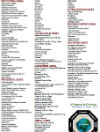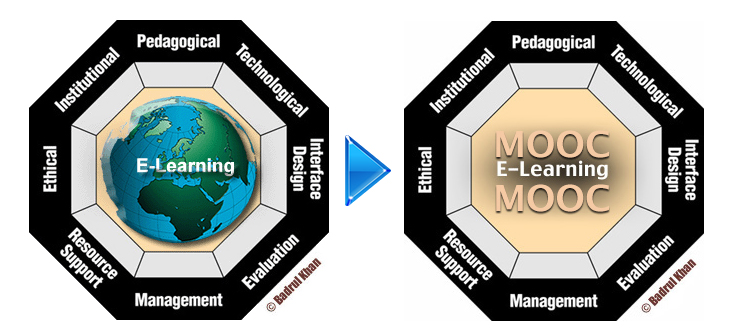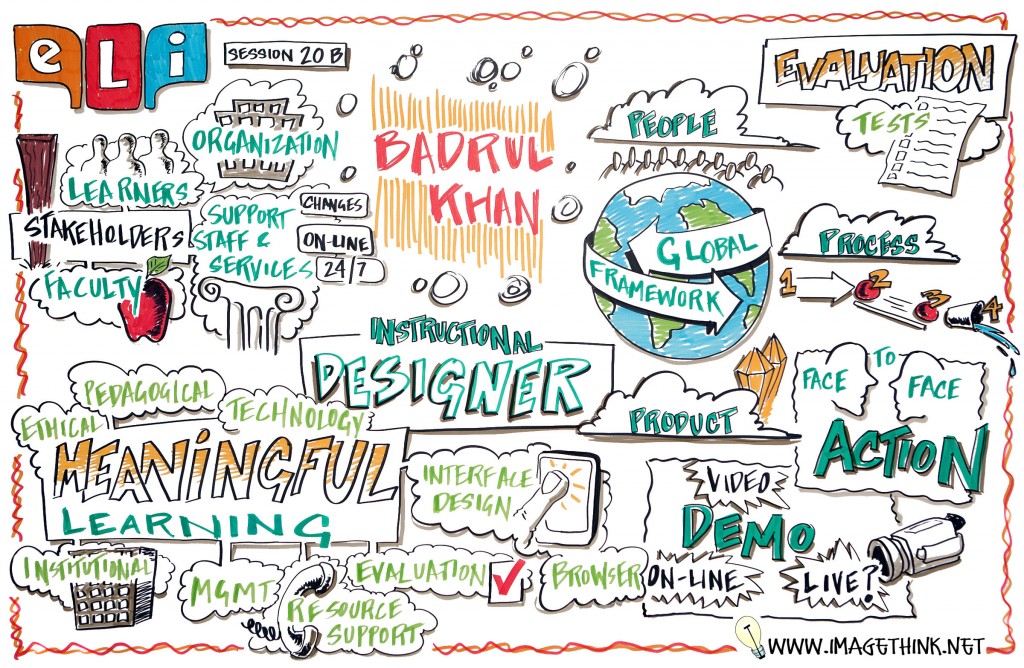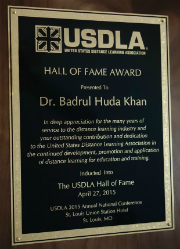Dr. Robert Doyle, Harvard University, USA uses Khan’s MOOC Framework for his Paris presentation entitled “Why We MOOC: Philosophy and operations of HarvardX and EdX”
There are numerous names for open and distributed learning activities, including; E-Learning, Massive Open Online Courses (MOOCs), Web-Based Learning (WBL), Web-Based Instruction (WBI), Web-Based Training (WBT), Internet-Based Training (IBT), Distributed Learning (DL), Advanced Distributed Learning (ADL), Distance Learning, Online Learning (OL), Mobile Learning (or m-Learning) or Nomadic Learning, Remote Learning, Off-site Learning, a-Learning (anytime, anyplace, anywhere learning), etc.
Design, development, implementation and evaluation of open and distributed learning systems (e.g., MOOCs) require thoughtful analysis and investigation of how to use the attributes and resources of the Internet and digital technologies in concert with instructional design principles and issues important to various dimensions of online learning environments.
After reflecting on various factors important to open and distributed learning environments, I developed A Framework for E-learning. These factors can encompass various online learning issues, including: pedagogical, technological, interface design, evaluation, management, resource support, ethical and institutional. Various factors discussed in the eight dimensions of the framework can provide guidance in the design, development, delivery and evaluation of open and distributed learning environments.
The E-Learning Framework was reviewed by scholars and practitioners from various countries around the globe, including (but not limited to:) USA, Canada, UK, Australia, New Zealand, Netherlands, South Africa, Turkey, Korea, Oman, India, Italy, Slovakia, Egypt, Iran, Chile and China.
The E-Learning framework has the potential to provide guidance in
- planning and designing e-learning and blended-learning materials (e.g., MOOCs, Mobile Learning),
- organizing resources for e-learning environment and blended-learning materials,
- designing distributed learning systems, corporate universities, virtual universities and cyberschools,
- designing LMS, LCMS and comprehensive authoring systems,
- evaluating e-learning, blended-learning courses, and programs, and
- evaluating e-learning authoring tools/systems, LMS and LCMS.
The pedagogical dimension of E-learning refers to teaching and learning. This dimension addresses issues concerning content analysis, audience analysis, goal analysis, media analysis, design approach, organization and methods and strategies of e-learning environments.
The technological dimension of the E-Learning Framework examines issues of technology infrastructure in e-learning environments. This includes infrastructure planning, hardware and software.
The interface design refers to the overall look and feel of e-learning programs. Interface design dimension encompasses page and site design, content design, navigation, and usability testing.
The evaluation for e-learning includes both assessment of learners and evaluation of the instruction and learning environment.
The management of e-learning refers to the maintenance of learning environment and distribution of information.
The resource support dimension of the E-Learning Framework examines the online support and resources required to foster meaningful learning environments.
The ethical considerations of e-learning relate to social and political influence, cultural diversity, bias, geographical diversity, learner diversity, information accessibility, etiquette, and the legal issues.
The institutional dimension is concerned with issues of administrative affairs, academic affairs and student services related to e-learning.
Artist’s Impression of Khan’s E-Learning Framework Presentation
 Test your knowledge about e-learning dimensions.
Test your knowledge about e-learning dimensions.
Eight Dimensional E-Learning Framework. Wikipedia page on Khan’s E-Learning Framework and other frameworks on e-learning.
Eight Component Framework for E-learning. EduTechWiki page on Khan’s E-Learning Framework.
 Click here for the most updated and complete list of e-Learning Dimensions and Sub-dimensions.
Click here for the most updated and complete list of e-Learning Dimensions and Sub-dimensions.
Framework in Spanish Lectura- Un marco para elearning
Framework in French
Framework in Chinese
Framework in Italian
Framework in Thai
Framework in Serbian (Page 12)
Framework in Portuguese (Page 23)



